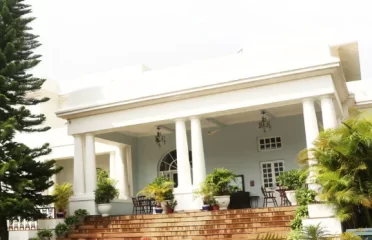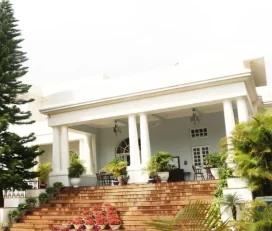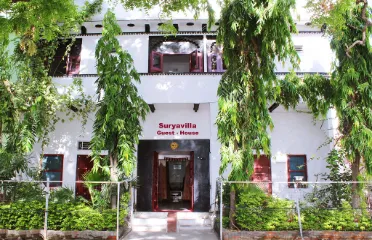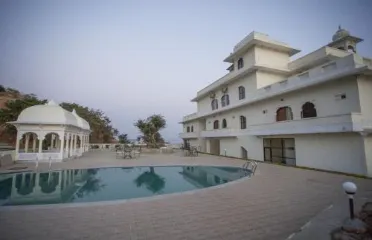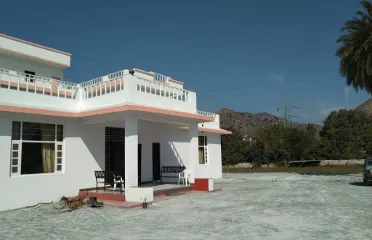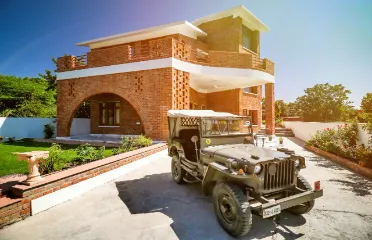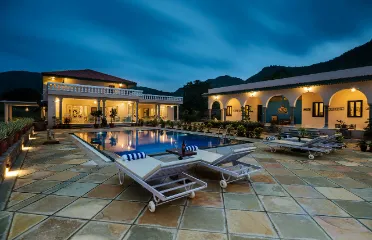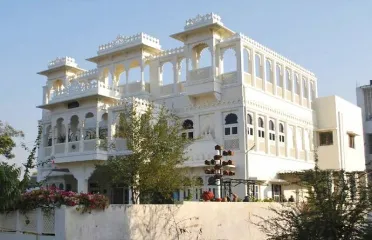See Filters
-
Near Me
Click To GET
0100
-
Best Match
Click To See Your Best Match
Guest House
Kanak Guest House
- Price Range 850 - 1500
Plot no 7 Ganesh colony near gramin police line opp. Jal Mahal Amer road Jaipur
Private Villa
Udaikot
Best Homestay in Rajasthan,
Best Homestay in Udaipur,
Homestay in Rajasthan,
Homestay in Udaipur,
Private Villa in Rajasthan,
Private Villa in Udaipur,
Rajasthan Homestay,
Udaikot,
Udaikot in Rajasthan,
Udaikot in Udaipur,
Udaikot Rajasthan
Udaikot Udaipur,
Be the first to review!
Private Villa
Udaikot
Best Homestay in Rajasthan,
Best Homestay in Udaipur,
Homestay in Rajasthan,
Homestay in Udaipur,
Private Villa in Rajasthan,
Private Villa in Udaipur,
Rajasthan Homestay,
Udaikot,
Udaikot in Rajasthan,
Udaikot in Udaipur,
Udaikot Rajasthan,
Udaikot Udaipur
Be the first to review!
- Price Range 19500
Mahaveer Colony Park, Udaipur, Rajasthan - 313011.
Homestay
Silverkey Homestay
Best Homestay in Mount Abu,
Best Homestay in Rajasthan,
Homestay in Mount Abu,
Homestay in Rajasthan,
Rajasthan Homestay,
Silverkey Homestay,
Silverkey Homestay in Mount Abu,
Silverkey Homestay in Rajasthan,
Silverkey Homestay Mount Abu
Silverkey Homestay Rajasthan,
Be the first to review!
Homestay
Silverkey Homestay
Best Homestay in Mount Abu,
Best Homestay in Rajasthan,
Homestay in Mount Abu,
Homestay in Rajasthan,
Rajasthan Homestay,
Silverkey Homestay,
Silverkey Homestay in Mount Abu,
Silverkey Homestay in Rajasthan,
Silverkey Homestay Mount Abu,
Silverkey Homestay Rajasthan
Be the first to review!
- Price Range 2000 - 3000
Plot no 53, Near Dilwara Temple, Mount Abu, Rajasthan - 307501
Homestay
The Altus – A Luxur...
Best Homestay in Mount Abu,
Best Homestay in Rajasthan,
Homestay in Mount Abu,
Homestay in Rajasthan,
Rajasthan Homestay,
The Altus Homestay,
The Altus Homestay in Mount Abu,
The Altus Homestay in Rajasthan,
The Altus Homestay Mount Abu
The Altus Homestay Rajasthan,
Be the first to review!
Homestay
The Altus – A Luxury Homestay
Best Homestay in Mount Abu,
Best Homestay in Rajasthan,
Homestay in Mount Abu,
Homestay in Rajasthan,
Rajasthan Homestay,
The Altus Homestay,
The Altus Homestay in Mount Abu,
The Altus Homestay in Rajasthan,
The Altus Homestay Mount Abu,
The Altus Homestay Rajasthan
Be the first to review!
- Price Range 10000 - 13000
Old Fateh Vilas, Opposite Gujrat Circuit House, Kumarwada, Mount Abu, Rajasthan - 307501.
Homestay
Surya Villa Homestay
Best Homestay in Rajasthan,
Best Homestay in Udaipur,
Homestay in Rajasthan,
Homestay in Udaipur,
Rajasthan Homestay,
Surya Villa Homestay,
Surya Villa Homestay in Rajasthan,
Surya Villa Homestay in Udaipur,
Surya Villa Homestay Rajasthan
Surya Villa Homestay Udaipur,
Be the first to review!
Homestay
Surya Villa Homestay
Best Homestay in Rajasthan,
Best Homestay in Udaipur,
Homestay in Rajasthan,
Homestay in Udaipur,
Rajasthan Homestay,
Surya Villa Homestay,
Surya Villa Homestay in Rajasthan,
Surya Villa Homestay in Udaipur,
Surya Villa Homestay Rajasthan,
Surya Villa Homestay Udaipur
Be the first to review!
- Price Range 1000 - 1500
Jada Ganesh Ji Ambapol, Outside Chandpole, Ambamata, Udaipur, Rajasthan - 313001.
Homestay
Karni Mahal Homestay
Best Homestay in Rajasthan,
Best Homestay in Udaipur,
Homestay in Rajasthan,
Homestay in Udaipur,
Karni Mahal Homestay,
Karni Mahal Homestay in Rajasthan,
Karni Mahal Homestay in Udaipur,
Karni Mahal Homestay Rajasthan,
Karni Mahal Homestay Udaipur
Rajasthan Homestay,
Be the first to review!
Homestay
Karni Mahal Homestay
Best Homestay in Rajasthan,
Best Homestay in Udaipur,
Homestay in Rajasthan,
Homestay in Udaipur,
Karni Mahal Homestay,
Karni Mahal Homestay in Rajasthan,
Karni Mahal Homestay in Udaipur,
Karni Mahal Homestay Rajasthan,
Karni Mahal Homestay Udaipur,
Rajasthan Homestay
Be the first to review!
Bhatwara, Jaisamand Lake, Udaipur, Rajasthan 313001.
Homestay
Jassbagh Homestay
Best Homestay in Rajasthan,
Best Homestay in Udaipur,
Homestay in Rajasthan,
Homestay in Udaipur,
Jassbagh Homestay,
Jassbagh Homestay in Rajasthan,
Jassbagh Homestay in Udaipur,
Jassbagh Homestay Rajasthan,
Jassbagh Homestay Udaipur
Rajasthan Homestay,
Be the first to review!
Homestay
Jassbagh Homestay
Best Homestay in Rajasthan,
Best Homestay in Udaipur,
Homestay in Rajasthan,
Homestay in Udaipur,
Jassbagh Homestay,
Jassbagh Homestay in Rajasthan,
Jassbagh Homestay in Udaipur,
Jassbagh Homestay Rajasthan,
Jassbagh Homestay Udaipur,
Rajasthan Homestay
Be the first to review!
- Price Range 1500 - 2500
NH-76 Airport Road, Amberi, Udaipur Rajasthan.
Homestay
Saorsa Homestay
Best Homestay in Rajasthan,
Best Homestay in Udaipur,
Homestay in Rajasthan,
Homestay in Udaipur,
Rajasthan Homestay,
Saorsa Homestay,
Saorsa Homestay in Rajasthan,
Saorsa Homestay in Udaipur,
Saorsa Homestay Rajasthan,
Saorsa Homestay Udaipur
Be the first to review!
- Price Range 2500 - 3000
3, Panchratna Vihar, Katara Paldi Road, Opposite Police Anveshan Bhawan Udaipur, Rajasthan - 313001.
Homestay
Premkunj Boutique Homesta...
Best Homestay in Rajasthan,
Best Homestay in Udaipur,
Homestay in Rajasthan,
Homestay in Udaipur,
Premkunj Boutique Homestay,
Premkunj Boutique Homestay in Rajasthan,
Premkunj Boutique Homestay in Udaipur,
Premkunj Boutique Homestay Rajasthan,
Premkunj Boutique Homestay Udaipur
Rajasthan Homestay,
Be the first to review!
Homestay
Premkunj Boutique Homestay
Best Homestay in Rajasthan,
Best Homestay in Udaipur,
Homestay in Rajasthan,
Homestay in Udaipur,
Premkunj Boutique Homestay,
Premkunj Boutique Homestay in Rajasthan,
Premkunj Boutique Homestay in Udaipur,
Premkunj Boutique Homestay Rajasthan,
Premkunj Boutique Homestay Udaipur,
Rajasthan Homestay
Be the first to review!
- Price Range Contact the Homestay directly for the Best Deal.
House No.1, Upli, Badi, Udaipur, Rajasthan - 313001.
Homestay
Gadh Ganesh Homestay
Best Homestay in Rajasthan,
Best Homestay in Udaipur,
Gadh Ganesh Homestay,
Gadh Ganesh Homestay in Rajasthan,
Gadh Ganesh Homestay in Udaipur,
Gadh Ganesh Homestay Rajasthan,
Gadh Ganesh Homestay Udaipur,
Homestay in Rajasthan,
Homestay in Udaipur
Rajasthan Homestay,
Be the first to review!
Homestay
Gadh Ganesh Homestay
Best Homestay in Rajasthan,
Best Homestay in Udaipur,
Gadh Ganesh Homestay,
Gadh Ganesh Homestay in Rajasthan,
Gadh Ganesh Homestay in Udaipur,
Gadh Ganesh Homestay Rajasthan,
Gadh Ganesh Homestay Udaipur,
Homestay in Rajasthan,
Homestay in Udaipur,
Rajasthan Homestay
Be the first to review!
- Price Range 1500 - 3000
5-6 Patanjali Vihar, New Bhopalpura, Udaipur, Rajasthan - 313001.
- 1
- 2
- 3








